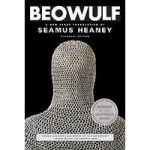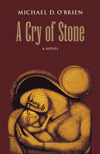The best part of my job teaching high school English is that I am forced to reread a handful of classic books every year. Without this incentive, I would rarely re-read the old favorites–with so many new books on the must-read list, who has the time? Fortunately, it’s part of my job to make the time for revisiting a few. Recently, my 9th graders finished Shakespeare’s Romeo and Juliet.
I first read this play in Mrs. Bye’s 8th grade English class. I still have my copy of the text from that unit, complete with mundane annotations in bright purple ink, but I’m afraid that the only instruction I can remember is an embarrassing conversation about how we mustn’t think that Romeo was up to no good when he wakes up in Juliet’s chamber in Act III scene v, because he did marry Juliet properly, even though that part happened off-stage. Overall, though, my first impression of this tragedy was dominated by a profound sense of doom. Those two kids had so much working against them: they didn’t stand a chance!
I encountered the play a second time just after the end of my sophomore year of high school. Taking the advice of a beloved history teacher, who swore by the mystical power of “Shakespeare Dates” to revive the magic in romantic relationships, my boyfriend and I went to a production of R&J performed in St. Louis’ Forest Park. The plan backfired, though. When faced with Juliet’s heart-rending display of devotion, I admitted to myself that I would NOT commit suicide out of despair if my boyfriend died. Acknowledging that my feelings for him would never measure up to that tragic standard convinced me that the relationship was going nowhere. I dumped him after the show. (It would be some time before I understood that killing oneself is not, in fact, the ultimate display of affection.)
That was over ten years ago–(which means that my 10th high school reunion will be NEXT YEAR! So stressful!)–and I managed to avoid a serious rereading of the play until this recent unit. What a difference 10 years can make! My perspective on these characters has altered dramatically, as well as my understanding of Shakespeare’s overall message. Romeo and Juliet aren’t doomed: they are agents of their own fates just as much as the rest of us. And the point isn’t that this tragedy was unavoidable and necessary for reconciliation between the Capulets and the Montagues; No, the point is that it COULD have and SHOULD have been prevented, and only a series of consciously wrong choices allowed it to happen.
Both Romeo and Juliet experience moments of foreboding and voice their concerns that “Gee, I get the feeling that if I crash this party/drink this sleeping potion, something really bad is going to happen.” But they do it anyway! And did I mention that these star-crossed lovers spend a grand total of 20 minutes together before vowing eternal devotion and sneaking off to marry each other? An impulsive, rebellious marriage smacking of a rebound (remember Rosaline, Romeo??) carefully orchestrated by the well-intentioned Friar who excuses multiple deceptions because he just wants everyone to get along: Can this be true love?
As an eighth grader, I found their declarations beautiful and inspiring. Ten years later, I find myself shaking my head and sighing “Oh, children…” as they cavalierly offer to strip themselves of their very names if only they can be together. Romeo and Juliet is a tragedy, all right, but for completely different reasons than I originally thought. I’d love to juxtapose this unit with The Crucible and assign a comparative essay on the significance of names.
How have your re-reading experiences altered your thinking about a certain novel or play?










